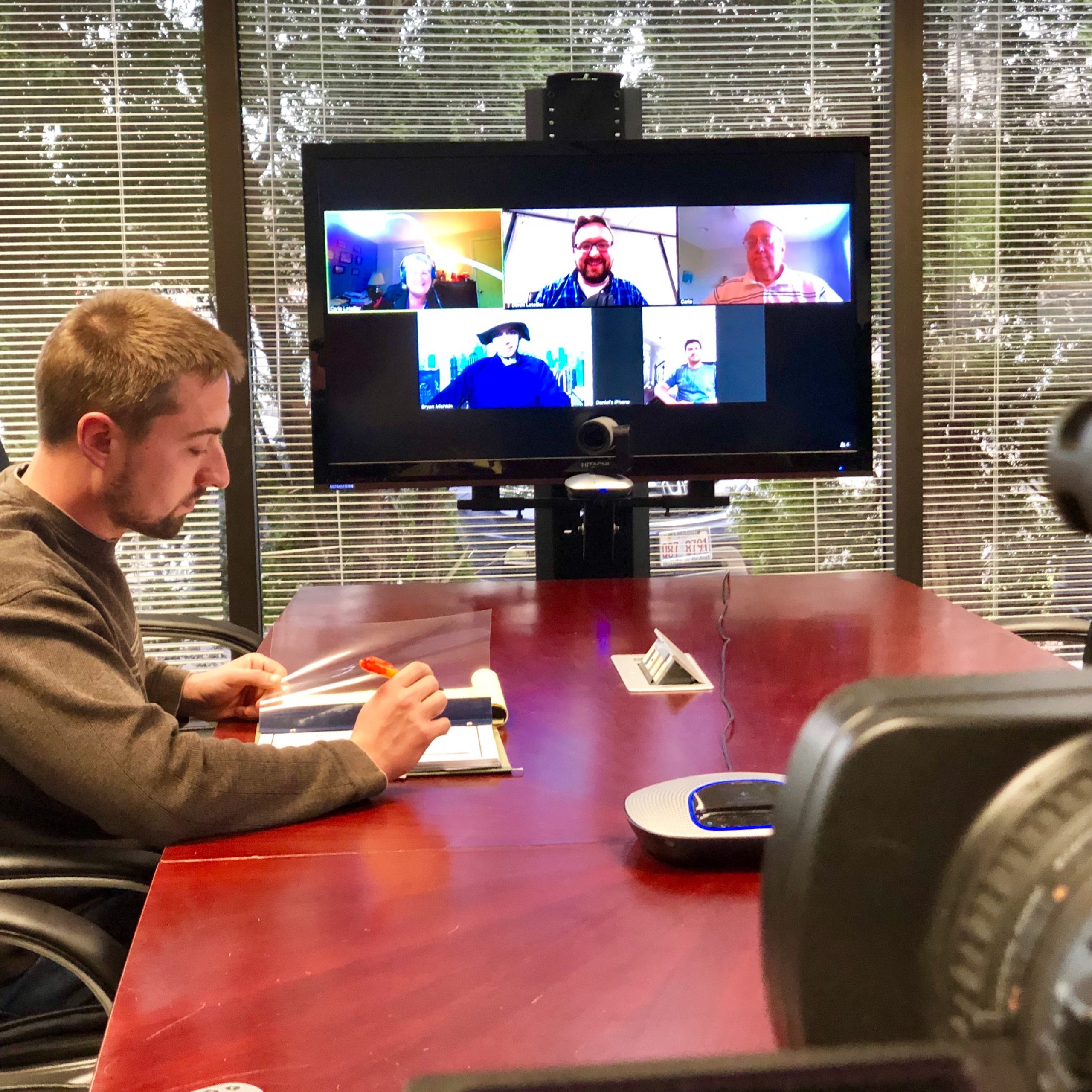Browsing the Future of Legal Process With Seamless Remote Depositions Solutions
As technology continues to breakthrough, the assimilation of seamless options for remote depositions has come to be critical for lawful experts seeking reliable and economical ways to perform depositions. By checking out the complexities of navigating the future of lawful proceedings via smooth remote deposition solutions, a more clear understanding of the chances and complexities that exist ahead can be gained.
The Rise of Remote Depositions
This shift has been largely driven by the need for versatility, performance, and cost-effectiveness in lawful proceedings (REMOTE DEPOSITIONS). Remote depositions enable lawyers, witnesses, and court press reporters to participate from different areas, removing the need for physical existence in a certain deposition area.
Furthermore, the improvements in video clip conferencing systems and electronic tools have improved the general experience of remote depositions, making certain clear audio-visual interaction and secure paperwork of testaments. Legal professionals now have the option to perfectly arrange, document, and record depositions effortlessly, simplifying the whole procedure.
As modern technology remains to evolve, remote depositions are expected to become even more prevalent in the legal industry, offering a convenient and effective solution for carrying out depositions in a fast-paced and interconnected globe. (REMOTE DEPOSITIONS)
Advantages of Seamless Innovation Combination
Just how does seamless modern technology assimilation improve the performance and efficiency of remote depositions in the lawful industry? Smooth technology combination plays an essential duty in improving remote depositions, supplying a myriad of benefits to legal specialists.
Additionally, smooth technology combination makes it possible for secure and trustworthy data transmission, guaranteeing that delicate details shared during depositions is secured. Advanced attributes such as virtual exhibitions, digital trademarks, and video clip conferencing enhance the general performance of remote depositions, mimicking the in-person experience with added benefit. In addition, the assimilation of transcription services and AI-powered tools can even more enhance the deposition procedure, conserving time and reducing the margin of error.

Conquering Challenges in Online Process
To effectively navigate online process, lawyers should attend to and get over numerous challenges that arise in the digital atmosphere. One of the main barriers encountered in digital process is ensuring protected communication and information security. With sensitive information being shared online, maintaining client confidentiality and avoiding data breaches is critical. Additionally, technical difficulties such as inadequate internet link or audio/video concerns can interfere with the circulation of process and influence the top quality of communications between participants. Attorneys have to additionally adapt to the absence of physical existence, which can prevent non-verbal cues and interaction subtleties crucial in legal contexts. Furthermore, maintaining engagement and emphasis in digital settings can be challenging for both lawful groups and witnesses, possibly affecting the effectiveness of the process. To reduce these challenges, lawful experts should purchase trusted innovation, establish clear methods for online proceedings, give training on online etiquette, and make sure contingency strategies are in place to attend to technical concerns quickly. By proactively addressing these obstacles, legal specialists can enhance the performance and efficiency of digital proceedings.
Ensuring Protection and Compliance Steps
In the world of lawful process, safeguarding security and making certain compliance measures is of critical value for keeping trust fund and upholding the integrity of the process. With the shift towards remote depositions, making sure the safety and discretion of delicate details traded throughout these process is critical. To attain this, lawful specialists need to take advantage of safeguard online systems that use end-to-end file encryption, secure gain access to controls, and compliance with sector regulations such as HIPAA and GDPR.

Future Trends in Legal Technology Assimilation
As the lawful landscape remains to evolve with remote deposition remedies stressing safety and compliance, the assimilation of sophisticated legal technologies is positioned to form future trends in the lawful market. One popular fad that is getting traction is making use of man-made intelligence (AI) and artificial intelligence in legal technology. AI-powered tools can aid in lawful research, agreement analysis, and also predicting instance results based upon historical information. This combination streamlines procedures, decreases additional hints human mistake, and enhances decision-making capacities.
Moreover, cloud-based options are coming to be increasingly prominent in the lawful sector. Cloud innovation supplies enhanced versatility, scalability, and access, allowing legal experts to function collaboratively from anywhere with an internet connection. This pattern not just boosts efficiency but likewise advertises cost-effectiveness by decreasing the requirement for physical framework and maintenance.
Additionally, blockchain technology is making its way right Continue into lawful technology assimilation, supplying protected and transparent ways to manage sensitive information, improve deals, and verify the credibility of legal files. By embracing these future trends in legal technology combination, legislation companies can stay ahead of the curve, improve customer service, and adjust to the transforming needs of the industry.
Conclusion
Finally, the combination of seamless remote deposition services has actually reinvented lawful procedures by offering numerous benefits such as enhanced performance, cost-effectiveness, and availability. In spite of dealing with difficulties in virtual procedures, improvements in technology proceed to resolve safety and conformity concerns (REMOTE DEPOSITIONS). As the legal industry embraces further combination of innovation, future patterns direct towards an extra structured and efficient lawful procedure